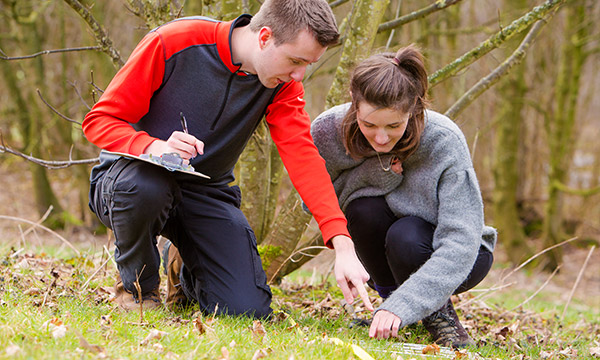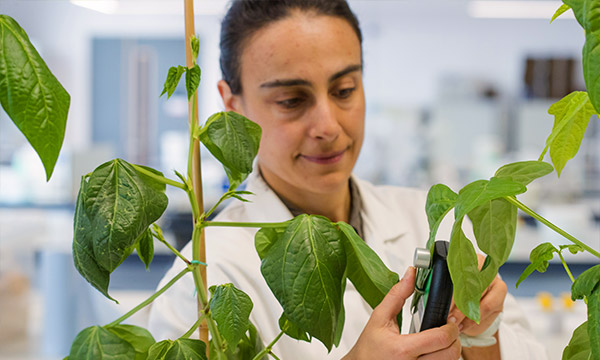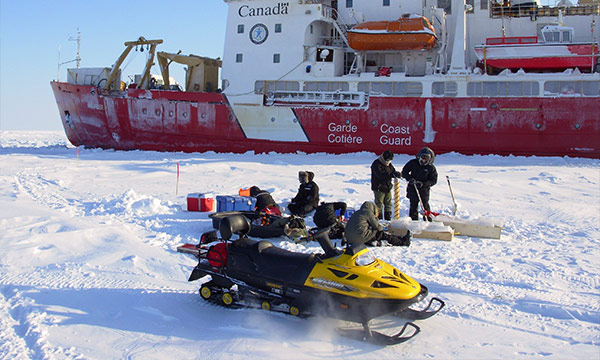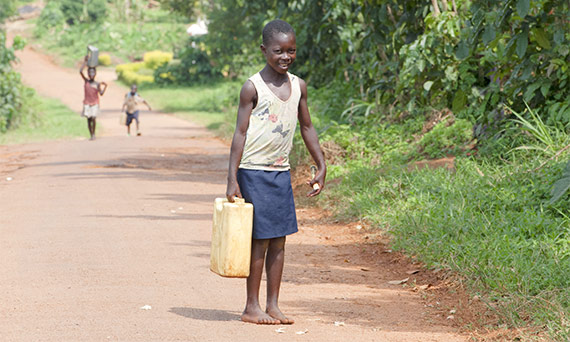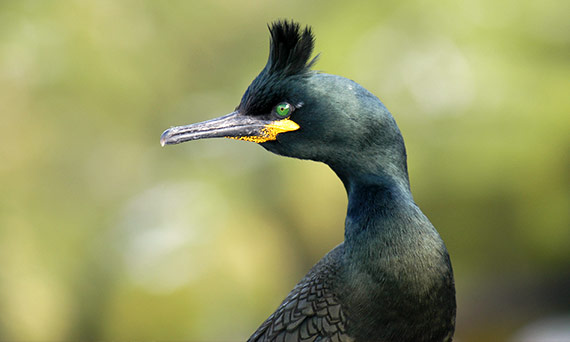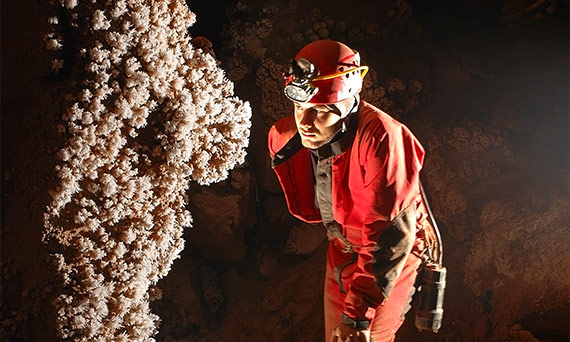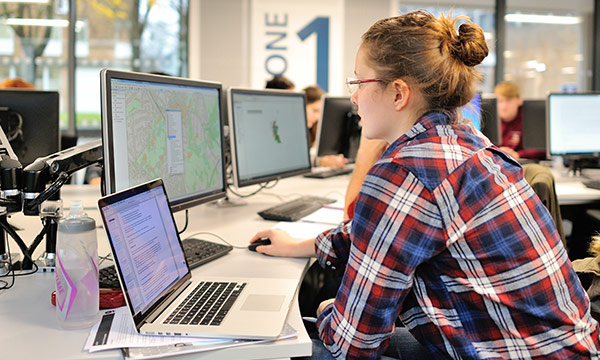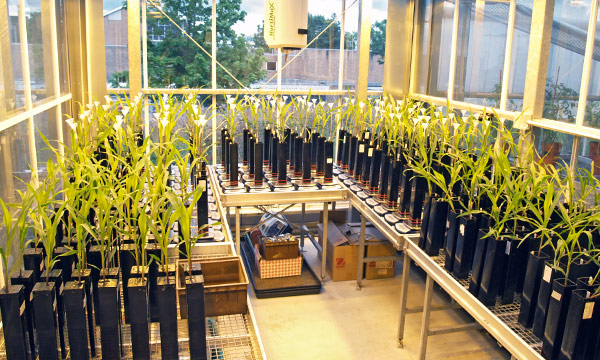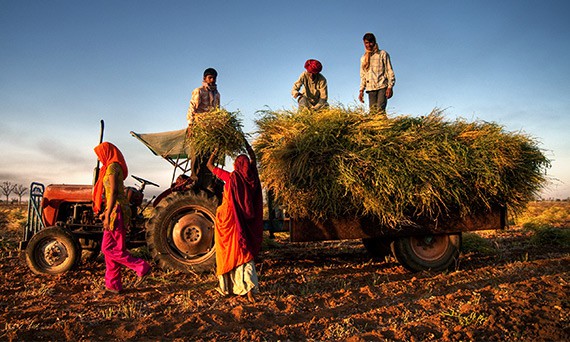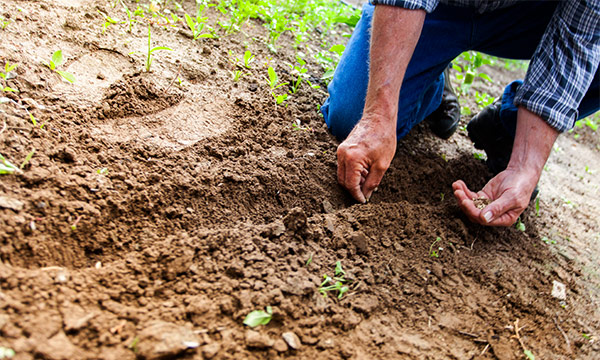Thomas O'Mondain-Monval with Dr Stuart Sharp
Many Afro-Palearctic migrant birds are in decline, but the underlying causes are complex and require further study. This project investigated (1) the factors affecting breeding success and (2) the impact of climatic conditions on phenology and population size in the colonial sand martin, Riparia riparia. Fledging success was found to be correlated with breeding burrow depth, but high CO2 concentrations had no detectable effect. Arrival date and population size were both predicted by regional climatic variables in the previous winter and during migration. Together, these results reveal the diversity of challenges faced by migrants at different stages of the life cycle. Thomas went on to do a PhD here at Lancaster, continuing his research on declining migrant birds.
Natasha Hoare, Energy4All, Dr Nils Markussen
Co-operatively owned renewable energy projects in the UK have been praised for their potential to allow communities to take control and benefit directly from clean energy production. The model for energy co-ops has been developing for over twenty years, and some organisations in the sector are questioning where they can go next. This thesis assesses how far there is scope for energy co-ops to develop further, by benefitting communities more widely and doing more to tackle environmental issues. The thesis draws on case study research undertaken at three energy co-op sites, in addition to an online questionnaire sent to 24 energy co-operatives associated with the intermediary Energy4All. By assessing the activity and visions held in these co-operatives it draws out promising areas of innovation. It also highlights the complexity of these groups, and the challenges that they face in retaining engagement and navigating relationships with other public and private organisations. The thesis identifies several key areas where further consideration, or support from intermediary groups, would be helpful to maximise their potential.
Bryce Malton, Dr Jennie Gilbert, Dr Steve Lane
Volcanic ash suspended within plumes has been a hazard to aviation since the advent of commercial jet airliners in the 1960s. This study examined the interaction of volcanic ash particles with metallic surfaces likely to be found on an aircraft, and its ability to charge those surfaces by the impact. This was done by directing a high-pressure jet of mixed air and ash at a fixed target. The charging was quantified as the charge generated on the target surface per unit mass of particulate impacted. By testing volcanic ash alongside a control material, the study provided evidence that fracto-emission is the dominant charging process. It was demonstrated that volcanic ash impacting a metallic target at mass delivery rates of approximately 5 mg s-1 can generate charge to mass ratios of 0.5 to 0.8 C kg-1 at impact speeds in the range of 60 to 70 ms-1. The study concluded that discrimination of particulate type is possible and hypothesised that the observed behaviours could form the basis for an onboard volcanic ash detection sensor system for pilot warning and guidance.
Natalie Davis, Dr Andrew Jarvis
The ubiquity and necessity of resource acquisition and distribution networks in earth systems merit considerable study and understanding. In this project, the student-constructed model networks using an electrical analogue and discussed the mapping between these generalised energy flows and a model organism, the honeybee. The networks were optimised with a customised optimisation algorithm, and characteristics of the resulting networks were compared to those of known honeybee foraging networks. The student provided suggestions for both model improvement and future applications using similar methods. Natalie went on to do a PhD in this area and is currently in her second year.
Kellie Smith, Dr Mike Roberts
Kellie undertook her MSc by Research as part of the Centre for Global Ecoinnovation LoCaL-i programme. Her project was linked with an industry partner and focused on the behaviours of a range of new biological adjuvant products being developed for use in spray application of crop protection products in organic farming. The adjuvants tested demonstrated a range of different effects on droplet areas and retention times, ability to promote uptake of molecules into a leaf, and toxicity towards a live bio-fungicide. Her work allowed the company to identify key target products to take to market and the team was awarded ‘Best new Semiochemical product’ award at the 2019 Annual Biopesticide Summit. Kellie’s success allowed her to win a PhD studentship at the University of Nottingham as part of a BBSRC Doctoral Training Programme focused on Agriculture and Food Security.
Adgro Consulting Ltd provides agricultural and horticultural specialist consulting, including market intelligence, new market development, product sourcing and the development of adjuvants, bio-controls, specialist nutrition and water management products. This research has led to significant advances in both conventional and organic agricultural practices.
The development and commercialisation of this product reported a saving of 1,746.84 tCO2e.
Noel Salmon, Dr Suzi Ilic, Dr Andrew Folkard
Noel undertook his MSc by Research as part of the Centre for Global Eco-Innovation, part-funded by the European Regional Development Fund. This project carried out a small-scale hydropower feasibility assessment at Browsholme Hall, a rural establishment in Lancashire, UK. Browsholme Hall is a historic Grade I listed building which operates as a business and a family home to the Parker family. Strict planning permission regulations have ruled out solar and wind power at Browsholme Hall due to its Grade I listed status. As the local area surrounding Browsholme Hall experiences relatively high levels of rainfall, and the site contains various water bodies, it was assumed that there was potential for small-scale hydropower development. Thus, a feasibility assessment was carried out.
The results of the assessment showed that small-scale hydropower was unfeasible at Browsholme Hall. This was primarily caused by the intermittency of significant potential power generation, which was due to a combination of low head and flow on-site. The results show that either significant head or flow is required for small-scale hydropower to be viable. This finding is important as it can be used as a proxy to assess other areas with similar hydrological and topographic characteristics, particularly in the surrounding area. Moreover, it allows a partial assessment to be made of the feasibility of small-scale hydropower in England, which may not be as feasible as previously assumed. Subsequently, it may be more appropriate for the UK to adopt alternative renewables such as wind and solar power to reduce its carbon emissions.
Similarly, alternative renewables are also recommended at Browsholme Hall. However, as the planning permissions are particularly strict, it was recommended that the owners consult with the local planning authority to ascertain whether they could install alternative renewable technologies without impacted the grade I listed status of Browsholme Hall. For example, this project recommended installing solar panels on buildings a fair distance from the hall, or as a floating platform on one of the ponds on-site.
Thomas Martin, Dr Carly Stevens, Dr Shane Rothwell
Thomas undertook his MSc by Research as part of the Centre for Global Eco-Innovation, part-funded by the European Regional Development Fund. This research aimed to establish the principle modes of action of wetting agents and provide evidence to support research carried out by partner company Agronomy Research Group. Three experiments were carried out in controlled conditions using the same products that were used for the company’s field research. The research found evidence to support field observations, that the new product favours the growth of a desirable species over a weed species. Use of the new product has the potential to reduce water use, not only through its action as a wetting agent but also by changing species composition to favour more drought-tolerant species.
With both this research and the research carried out by Agronomy Research Group, we now have a wealth of data that shows the products potential. The aim is to now bring the product to ‘end-user trials’ to assess its performance in a range of different field conditions. There is great potential to reduce the need for herbicides to control annual meadow grass on golf greens if the product can consistently show the same results with repeated trials in the field.
Natasha Hoare, Dr Nils Markusson
Natasha undertook her MSc by Research as part of the Centre for Global Eco-Innovation, part-funded by the European Regional Development Fund. The project examined the ongoing activity and views held in three case study energy co-operatives, as well as conducting a questionnaire between 24 energy co-operatives. The purpose of the study was to understand the wider potential that energy co-operatives have to innovate socio-ecologically, rather than just looking at one factor such as energy output. The industry partner, Energy4All, helps to develop provide support to energy co-ops in the UK. Their family of co-ops is growing fast – this research helps them by shining light on key areas where further consideration or support would be helpful in a quickly developing sector.
The findings of this research are intended to help Energy4All to provide better support and a clearer direction for the future development of energy co-operatives. There is no way to distinctly measure benefits from the research yet, although the carbon reduction identified during the project (240.41tonnes CO2e) suggests how much could be achieved by just one project which continues to innovate after its initial launch.
There are other less tangible benefits too, potentially impacting the communities involved on several levels:
- The co-op shareholders receive interest payments from their shares, however, few of them entered into the schemes solely for material gain. They wanted to contribute to carbon reduction, to support the co-operative model, and to boost local communities. Therefore, if they could see their co-operatives contributing to greater socio-ecological innovation, shareholders will see their investment going further and potentially be more supportive/more likely to invest in future schemes, channelling more money and interest into the community energy sector.
- The co-op directors could benefit from the research – some key issues were highlighted such as lack of time for them to pursue other co-op activity, and uncertainty around how far their relationship with Energy4All went after the projects were launched (especially given the number of co-ops in the Energy4All family had grown so much in recent years). If, for example, Energy4All were to create a role specifically for post-launch development of projects (one of the possible recommendations), this would make the relationship clearer and afford more time to the pursuit of further activity.
- Non-members of the co-operatives would also be set to benefit. For example, it was noted in the thesis that Community Benefit Fund grants weren’t always allocated most effectively; despite being ‘free money’, it could be hard for community groups to find the time to put together applications which also fit the co-ops sustainability criteria. The co-operatives appeared to learn by doing, but if these experiences could be consolidated in any way, for example, if Energy4All were to put together a handbook or guide for Community Benefit Fund allocation, then this could lead to more successful allocation of funding.
This project has highlighted that if just one project continues to innovate after its initial launch, there is a potential carbon saving of 240 tCO2e.



